NIAID
-

Restricting HIV-1 infection
Vanderbilt researchers are discovering ways that host proteins block HIV-1 infection, which could suggest new avenues for treatment. Read MoreSep 1, 2017
-

Probing the genetics of autoimmunity
Vanderbilt researchers have found that non-coding regions of the genome appear to contribute to the risk of autoimmune diseases and may represent attractive therapeutic targets. Read MoreJul 21, 2017
-

New approach for staph-related skin abscesses explored
New multicenter research that includes Vanderbilt University Medical Center (VUMC) investigators, could change treatment approaches to simple skin abscesses, infections often caused by Staphylococcus aureus (staph) bacteria. Read MoreJul 13, 2017
-
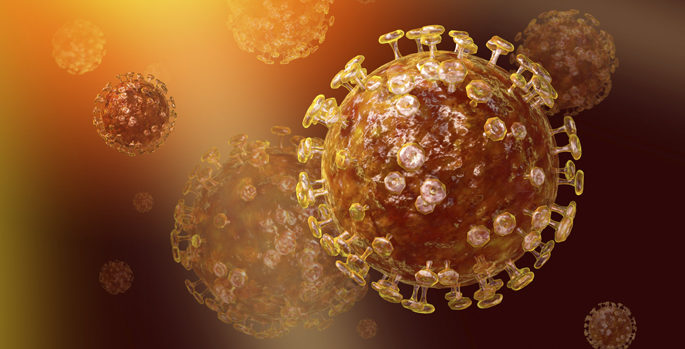
Team investigates antiviral that inhibits SARS, MERS
A new antiviral drug candidate inhibits a broad range of coronaviruses, including the SARS and MERS coronaviruses, a multi-institutional team of investigators reports this week in Science Translational Medicine. Read MoreJun 29, 2017
-

Flip side of gut protection
Vanderbilt investigators report that dysregulation of certain immune cells in the intestines may lead to inflammation and disease. Read MoreJun 9, 2017
-

RSV-HRV viral interference
RSV infection reduces the risk of infection with human rhinovirus, which could have implications for vaccine development and prevention strategies for viral respiratory tract infections in infants. Read MoreMay 15, 2017
-
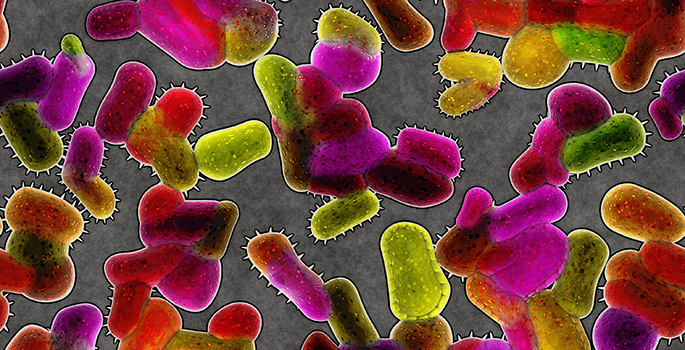
Bacterial signaling systems
Vanderbilt researchers have identified a unique example of communication between bacterial signaling systems, which may have relevance for antibiotic resistance. Read MoreFeb 3, 2017
-
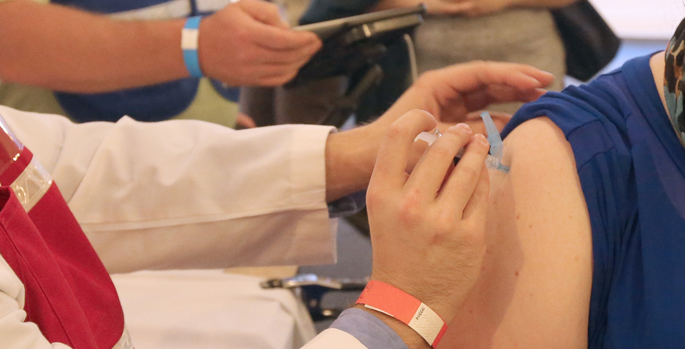
Flu vaccine response in older adults
High dose flu vaccine boosts the immune response in older adults by increasing activation of certain immune cells. Read MoreJan 25, 2017
-

Study to track diabetes drug’s ability to also treat asthma
Investigators in the Division of Allergy, Pulmonary, and Critical Care Medicine and the Division of Diabetes, Endocrinology, and Metabolism recently received a $1.25 million grant from the National Institute of Allergy and Infectious Diseases. Read MoreJan 19, 2017
-

Study tests shorter antibiotic course in children
Researchers at Vanderbilt University Medical Center (VUMC) are leading a multicenter clinical trial to evaluate whether a shorter course of antibiotics — five days instead of 10 — is effective at treating community-acquired pneumonia (CAP) in children who show improvement after the first few days of taking antibiotics. Read MoreDec 1, 2016
-

VUMC investigators find pathogens work together to infect host
Pseudomonas aeruginosa and Staphylococcus aureus — two pathogens that frequently co-infect the lungs of patients with cystic fibrosis — appear to cooperate with each other, Vanderbilt investigators have discovered. When pseudomonas is starved for metal by the host, it shuts down the production of factors that would normally kill staph, promoting a co-infection. Read MoreNov 3, 2016
-
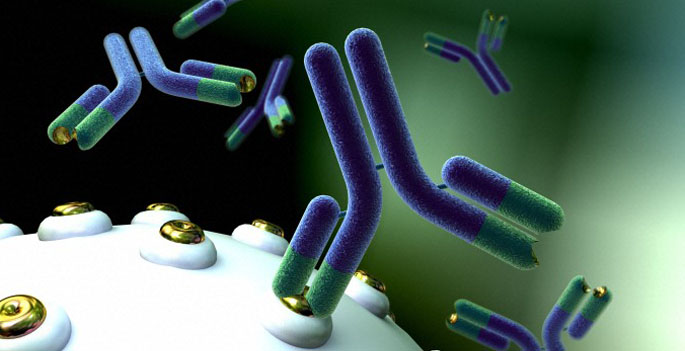
Preparing for a return of pox
To prepare for the potential of a smallpox return, Vanderbilt researchers are isolating and studying naturally occurring antibodies from the blood of previously infected or immunized people. Read MoreOct 20, 2016
-

Research sheds light on how RSV wards off potential vaccines
Respiratory syncytial virus (RSV) is the major cause of life-threatening viral pneumonia in infants worldwide, yet despite repeated efforts, scientists have been unable to develop an effective vaccine against it. Read MoreOct 20, 2016
-

Targeting norovirus “noxiousness”
New discoveries will guide efforts to develop vaccines or antiviral agents for norovirus, the most common cause of infectious diarrhea. Read MoreSep 28, 2016
-

Study shows excess dietary zinc worsens C. diff infection
Too much dietary zinc increases susceptibility to infection by Clostridium difficile — “C. diff” — the most common cause of hospital-acquired infections. Read MoreSep 26, 2016
-

In search of new asthma therapies
A peptide molecule relaxes airway smooth muscle and may be a potential therapeutic for asthma that has become resistant to standard therapies. Read MoreAug 15, 2016
-

Team to study RSV’s role in asthma formation
Investigators in the Division of Allergy, Pulmonary and Critical Care Medicine recently received a $4.5 million Asthma and Allergic Diseases Cooperative Research Center (AADCRC) grant from the National Institutes of Allergy and Infectious Diseases (NIAID). Read MoreJul 21, 2016
-
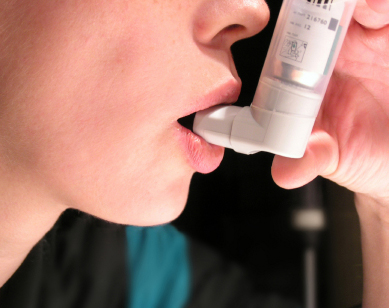
The odds of asthma
A number of factors during infancy increase the risk that a child will later develop asthma. Read MoreJun 27, 2016
-
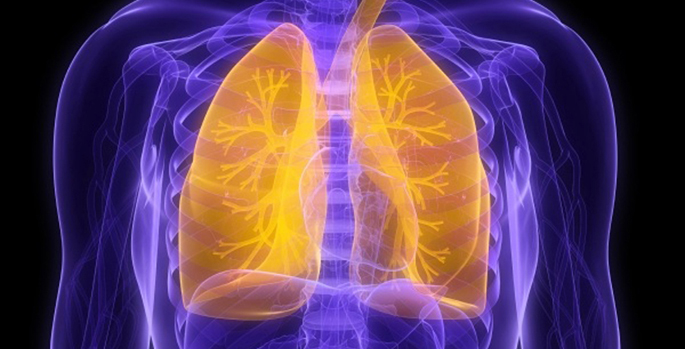
Pulmonary fibrosis culprits
New findings identify isoketal-modified proteins as a previously unrecognized feature of pulmonary fibrosis and as a potential therapeutic target for this disease. Read MoreJun 6, 2016
-
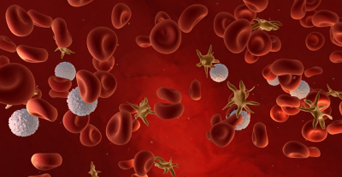
How strep grabs on to platelets
New structural details of the binding of the bacterium Streptococcus sanguinis to platelets may offer new therapeutics for life-threatening cardiovascular infections. Read MoreApr 20, 2016